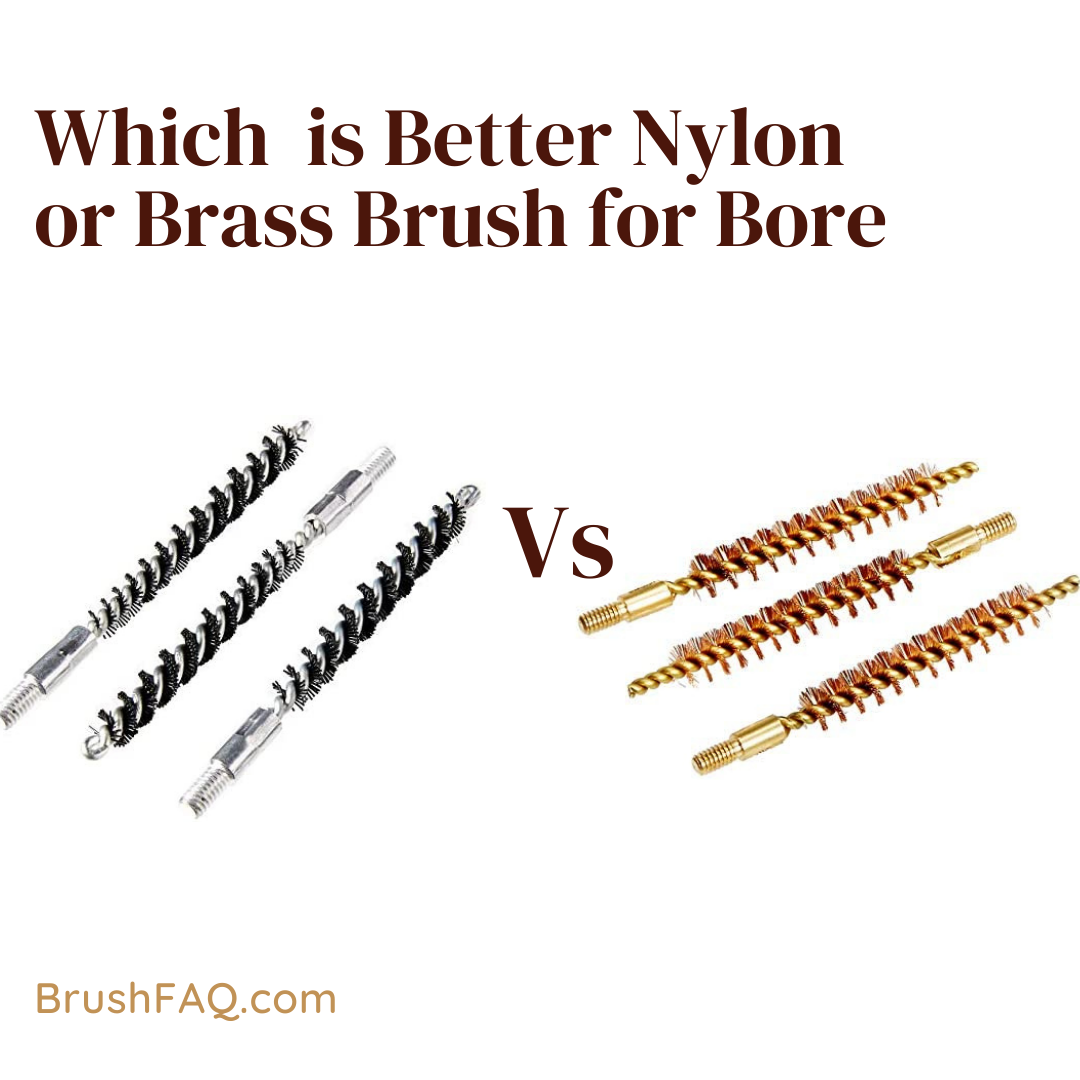Table of Contents
Nylon or Brass Brush for Bore
Today, I’d like to talk about which is better nylon or brass brush for bore. Brass is superior to everything else in every way except maybe weight and cost—it’s heavier and more expensive. Nylon brushes are not bad at all.
They can withstand a lot of use, but they don’t last forever. To sum up the main points in this article, you wanted to know which is better nylon or brass brush for bore?
Here, we have tried to give as simple answer as possible to this question by providing them with some information about both types of brushes and their usage.
Which is better—nylon or brass? The answer boils down to three things: cost, length, and style. Brass brushes, while they do last forever, are expensive and are harder on metal than nylon, while nylon brushes are cheaper, softer, and more durable.
Brass brushes are best for cleaning bores, while nylon brushes are best for cleaning action or flash hiders. Brass brushes are good for both rifles and shotguns, while nylon brush is only good for shotguns. And are usually more durable than nylon brushes and are also more expensive.
The main advantage of nylon brushes is that they are less likely to damage the bore (although brass brushes can still damage bores if used improperly). If you want to clean your nylon gun brush, check out our “How to Clean Nylon Gun Brush“.
Brass brushes have a tendency to “dig in” when pushed through the bore and will scrub off any thin coating of copper fouling left behind by solvent cleaners. This can leave your bore with a shiny appearance and a smooth feel, but it can also remove some of the protective layers on your bore that helps prevents further fouling.
Nylon brushes don’t dig into the bore as brass ones do, so they tend not to remove this protective layer of fouling. They also leave an inconsistent rough surface on the inside of your barrel, which could be problematic if you plan on using a solvent-based cleaning solution later on (like Hoppe’s No. 9).
Brass brushes are made of brass and are used to clean bores. They come in two sizes and can be used with water, solvent, or oil. We use the longer brush for rifles and use the shorter brush for shotguns.
Nylon brushes are made from nylon and are used to clean action or flash hiders. They are also available in two sizes and can be used with water, solvent, or oil. Check out “Pushing Nylon Brush Back and Forth Through Bore“, if you wanted to know how to care for your bores.
The difference between the two types of brushes is that brass brushes will last forever while nylon brushes will wear out after a certain amount of time, depending on how often they’re used and what they’re being cleaned with.
Brass brushes have a longer lifespan than nylon brushes but are more expensive than nylon ones; however, they’re better at cleaning bores than nylon ones because they don’t damage barrel rifling like nylon can do if it’s not properly cleaned off after use.
However…
Nylon Brush:
Nylon Brush is a good choice for short bores. The reason I say so is that this brush has a lot of grip that keeps it from slipping off the walls of the barrel. This will give you a better cleaning result.
Brass Brush:
Brass brush is also great for long bores, but not as much as nylon brush for short. It has less gripping power than nylon brush, which makes it easier for the brass brush to slip off the walls of your barrel and push debris deeper into the barrel instead of removing them from your barrel.
In Conclusion
We do not recommend nylon brushes for bores longer than 90 inches, but for bores shorter than 90 inches, nylon brushes will be a great choice. And brass brush works for bore lengths of 90 and longer.
Overall, Nylon or Brass brush for bore, which is better? So which is better nylon or brass brush for bore? Well, we have discussed the different brushes, and have concluded that nylon brush is not recommended for bores longer bores, but for shorter bores, nylon brush will be a great choice. So which one do you think is better? The answer is still up to you!

